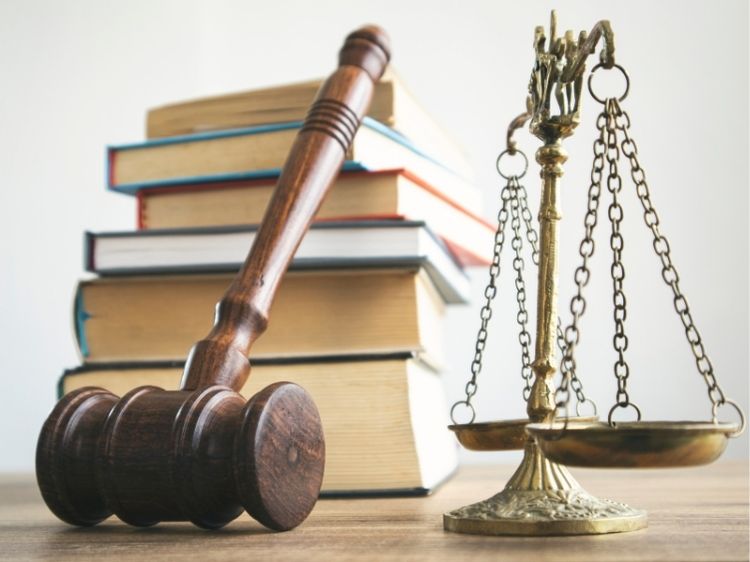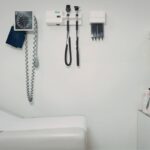Defective Medical Device Law Firm: Your Guide to Legal Recourse
Imagine this: you’ve been injured, not by an accident, but by a medical device you trusted to improve your health. It’s a scenario no one wants to find themselves in, yet it’s more common than you’d think. Defective medical devices can lead to severe injuries, long-term health issues, or even fatalities. When these devices fail, the consequences are dire. This is where a Defective Medical Device Law Firm steps in, helping victims seek justice and compensation for their suffering. But what exactly do these firms do, and how can they help you?
In this comprehensive guide, we’ll explore everything you need to know about defective medical device law firms, from what qualifies as a defective device to the legal process involved in seeking compensation. Whether you’re a potential client or just someone interested in understanding this critical area of law, this article will provide the insights you need.
What Qualifies as a Defective Medical Device?
A defective medical device is any device used in healthcare that fails to perform its intended function or causes harm due to a defect. These defects can arise in several ways:
- Design Defects: Flaws in the design of the device make it inherently unsafe.
- Manufacturing Defects: Errors during the manufacturing process lead to a dangerous product.
- Marketing Defects: Inadequate instructions or failure to warn users about potential risks associated with the device.
For instance, if a pacemaker malfunctions due to a design flaw, leading to severe health issues or death, it would be considered a defective medical device. The responsibility for these defects can fall on various parties, including the manufacturer, distributor, or healthcare provider.
Why You Need a Defective Medical Device Law Firm
When a medical device fails, the stakes are incredibly high. Victims often face mounting medical bills, lost wages, and emotional trauma. A Defective Medical Device Law Firm specializes in navigating the complex legal landscape to ensure you receive the compensation you’re entitled to. Here’s why you need one:
- Expertise in Complex Cases: These firms have extensive experience in handling cases involving intricate medical and legal details. They know what evidence is needed and how to build a strong case.
- Access to Resources: Defective medical device cases often require expert testimony, extensive research, and a deep understanding of medical devices. A specialized law firm has the resources to manage these aspects effectively.
- Negotiation Skills: These firms are skilled negotiators who can deal with large corporations and insurance companies, ensuring you get a fair settlement.
- Legal Representation in Court: If your case goes to trial, having a law firm with experience in defective medical device litigation is crucial. They will represent your interests and fight for the best possible outcome.
The Legal Process: What to Expect
Understanding the legal process can help ease some of the anxiety associated with filing a claim. Here’s a step-by-step breakdown of what you can expect when working with a defective medical device law firm:
- Initial Consultation: The process begins with a free consultation where you discuss your case with the law firm. They’ll evaluate the merits of your case and explain your legal options.
- Investigation: If the firm takes your case, they’ll start an in-depth investigation. This includes gathering medical records, interviewing witnesses, and consulting with medical experts.
- Filing a Lawsuit: Once enough evidence is gathered, the firm will file a lawsuit against the responsible parties. This could be the device manufacturer, distributor, or healthcare provider.
- Discovery Process: Both sides exchange information and evidence. This phase is crucial for building a strong case.
- Settlement Negotiations: Often, cases are settled out of court. Your law firm will negotiate on your behalf to secure a fair settlement.
- Trial: If a settlement isn’t reached, the case goes to trial. Your law firm will present your case, and a judge or jury will decide the outcome.
- Appeals: If necessary, the law firm may appeal the court’s decision if they believe it wasn’t fair or just.
Common Types of Defective Medical Device Cases
Defective medical device cases can involve a wide range of products. Some of the most common include:
- Hip Implants: These devices have been linked to severe complications, including metal poisoning and device failure.
- Pacemakers: Malfunctions in these devices can lead to life-threatening heart conditions.
- Surgical Mesh: Often used in hernia repairs, these devices can cause pain, infection, and other serious complications.
- Breast Implants: Certain types have been associated with a rare form of cancer known as BIA-ALCL.
- IVC Filters: These devices, used to prevent blood clots, can break apart and cause internal injuries.
Each of these cases requires specialized legal expertise to navigate the complex issues involved. A Defective Medical Device Law Firm will be familiar with these products and the unique challenges they present.
FAQs About Defective Medical Device Law Firms
Q: How do I know if I have a case against a medical device manufacturer?
A: If you’ve suffered injuries or complications due to a medical device, you may have a case. It’s essential to consult with a law firm that specializes in defective medical devices to evaluate your situation.
Q: What kind of compensation can I expect?
A: Compensation can cover medical expenses, lost wages, pain and suffering, and in some cases, punitive damages. The exact amount will depend on the specifics of your case.
Q: How long do I have to file a claim?
A: The statute of limitations varies by state, but it’s generally between 2 to 4 years from the date of injury or when the injury was discovered. It’s crucial to act quickly to preserve your rights.
Q: Do I have to pay upfront for legal representation?
A: Most defective medical device law firms work on a contingency fee basis, meaning they only get paid if you win your case. This makes it easier for victims to pursue justice without worrying about legal fees.
Q: Can I file a lawsuit if the device wasn’t recalled?
A: Yes, a recall isn’t necessary to file a lawsuit. If the device caused harm due to a defect, you may still have a valid claim.
Conclusion
Dealing with the fallout from a defective medical device can be overwhelming. The physical, emotional, and financial toll is immense, but you don’t have to face it alone. A Defective Medical Device Law Firm is your ally in this battle, providing the expertise, resources, and support you need to seek justice. By understanding the legal process and knowing what to expect, you can take the first step toward holding those responsible accountable for their actions.
Remember, time is of the essence. If you or a loved one has been affected by a defective medical device, don’t wait to seek legal advice. The sooner you act, the better your chances of securing the compensation you deserve.
Authoritative Links
- FDA Medical Device Recalls: www.fda.gov/medical-devices/medical-device-recalls
- National Center for Biotechnology Information: www.ncbi.nlm.nih.gov/pmc/articles/PMC6139744/
- American Bar Association on Medical Device Litigation: www.americanbar.org/groups/litigation/committees/medical-devices/
- U.S. Food and Drug Administration: www.fda.gov
- U.S. Department of Health and Human Services: www.hhs.gov







